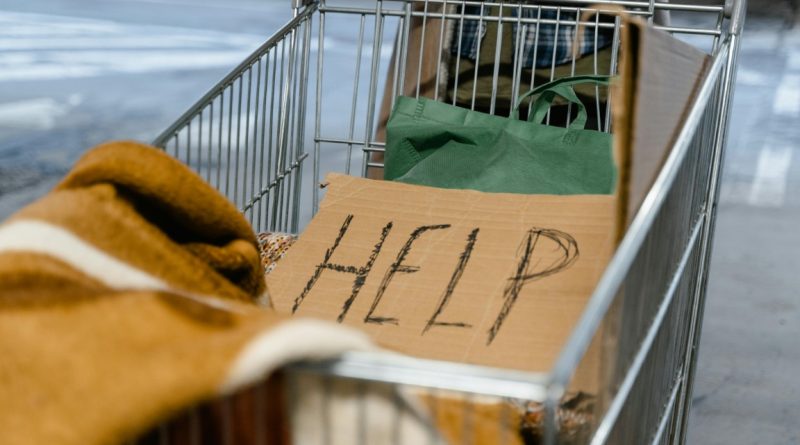Why is there so much homelessness in a supposedly rich country like Britain?
Walking around in cities small, medium, and large in Britain, at least in the south of Britain, it is obvious that this society is pockmarked by the abomination of homelessness. People sleepig in doorways out in the freezing cold and rain, people sleeping under the arches and in tunnels in London, everywhere there are people whom society has effectively sent to Rwanda, except that Rwanda is literally on our doorsteps.
Even in our age of rising over-population, homelessness is not yet inevitable in Britain, but is rather, a political choice and it is one that right-wing politicians and voters seem particularly keen on, driven in part by a vicious and callous ideology that holds that welfare programs create dependency and discourage self-sufficiency. As a result, right-wing governments invariabley cut back on welfare benefits whenever they can, even as they make sure that they enrich themselves and their friends from the public purse.
Homelessness itself is a complex and multi-faceted issue that affects many people in Britain (and all over the well-off Anglophone world, as well as the poor everywhere). There is no single cause of homelessness, but some of the common factors include:
• A lack of affordable housing: According to Shelter, there is a shortage of 3.6 million social homes in Britain, and the average house price is 12 times the average income (https://www.crisis.org.uk/ending-homelessness/about-homelessness/). This problem was mostly triggered by Margaret Thatcher and her flagship Right To Buy Scheme which she introduced within 18 months of her arrival in Number 10 (Housing Act, 3rd October 1980). A raft of factors, many deliberately introduced, have prevented councils from building replacement social housing in the intervening 43 years. Notably, New Labour did not stop the continuing haemorrhage of Right To Buy sales and their largely neoliberal policies did not seriously or effectively address the need for more social housing.
• Poverty and unemployment: Many people struggle to pay their rent or mortgage due to low wages, benefit cuts, debt, or losing their job. The Covid-19 pandemic has worsened the situation for many households, as millions have lost income or faced redundancy. (https://www.gov.uk/government/collections/homelessness-statistics)
• Life events and personal circumstances: Some people become homeless because of a relationship breakdown, domestic abuse, mental or physical health problems, substance misuse, or leaving prison, care, or the army without adequate support. (https://england.shelter.org.uk/media/press_release/274000_people_in_england_are_homeless_with_thousands_more_likely_to_lose_their_homes)
• Legal and policy factors: the Conservatives’ Homelessness Reduction Act 2017 introduced new duties for local authorities to prevent and relieve homelessness for all eligible applicants, regardless of priority need or intentional homelessness, but this neither addressed the underlying causes of homelessness nor did it give local authorities the resources and funding they need to implement the policy effectively. Arguably, they knew this, and as it fits with their ideology of hurting the poor, it was very likely designed to operate exactly as it has. (https://www.theguardian.com/society/2019/nov/19/rage-and-responsibility-nine-months-of-reporting-homeless-deaths-why-isnt-it-election-priority)
Homelessness is not inevitable, and it can be prevented and ended with the right policies and interventions. Some of the possible solutions include:
• Increasing the supply of social and affordable housing: This would reduce the pressure on the private rented sector, and provide more stable and secure accommodation for low-income households.
• Providing adequate income and welfare support: This would help people to afford their housing costs, and prevent them from falling into poverty and debt. This could include increasing the minimum wage, restoring the benefit levels, and extending the Universal Credit uplift – or better yet, replacing it with a humane and decent system, including UBI (universal basic income).
• Offering holistic and person-centred services: This would address the diverse and complex needs of homeless people, and help them to access health care, education, employment, and social networks. This could include providing Housing First, which is an approach that gives homeless people a permanent home and wraparound support.
• Preventing homelessness at an early stage: This would identify and assist people who are at risk of homelessness, and intervene before they lose their accommodation. This could include providing mediation, legal advice, and financial assistance.
Homelessness is a stain on the escutcheon of every nation on Earth, but particularly in a country like Britain, which is in the top ten richest countries by GDP and boasts 171 billionaires and 2.85 million millionaires. Yes, that’s not a misprint, Britain has millioins of millionaires, though obviously a significant part of that wealth is in property – ironically and unsurprisingly.
Homelessness is horrible, miserable and wretched. It is not acceptable that in a rich country like Britain, hundreds of thousands of people are homeless, and thousands more are at risk of becoming homeless. It can be fixed but it requires collective action and political will – plainly missing on a large scale in neoliberal Britain. The first step on the road to eradicating homelessness will be to consign the Conservatives, who have done so much to create this wretched nightmare, to the far political wilderness for decades or better yet, forever. Like so many other matters, homelessness is political – only those on the Right like to say that it is not.
We all have a role to play in ending homelessness and trying to ensure that everyone has a safe and decent place to call home and one practical way that British voters can do that is by voting tactically in the next General Election to remove your Conservative MP. Best for Britain (with whom I have no connection at the time of writing) will be launching a tactical voting campaign next year and no doubt there will be others doing the same: https://www.bestforbritain.org/get_voting
Sources:
Shelter report
Homelessness statistics
Crisis UK – about homelessness
Crisis UK – preventing homelessness 2018
Guardian – homeless deaths
Homelessness Reduction Act 2017
Housing supply report
JRF – poverty & homelessness
Housing First

